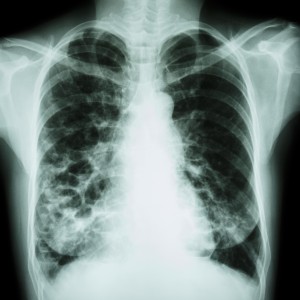 Researchers recently published in the journal The Lancet Respiratory Medicine their discovery that statin-based therapy is effective in patients with bronchiectasis. The study is entitled “Atorvastatin as a stable treatment in bronchiectasis: a randomized controlled trial.”
Researchers recently published in the journal The Lancet Respiratory Medicine their discovery that statin-based therapy is effective in patients with bronchiectasis. The study is entitled “Atorvastatin as a stable treatment in bronchiectasis: a randomized controlled trial.”
Bronchiectasis is characterized by a respiratory chronic inflammation that usually results from an infection or other condition that injures the walls of the airways, causing them to dilate and become scarred. In bronchiectasis, the airways slowly lose their ability to clear out mucus, so it accumulates in the lungs, creating an environment prone to bacteria growth that can lead to severe lung infections. Excess neutrophilic airway inflammation is usually observed in the lungs of patients. Sputum production, chronic cough and recurrent chest infections are signs of bronchiectasis.
Statins are a class of drugs usually prescribed to lower cholesterol levels but that are also known to modulate the innate and adaptive immune systems and decrease inflammation (for instance by attenuating neutrophil recruitment, the most abundant white blood cells). Researchers hypothesized that due to their anti-inflammatory properties, statins could be used in the treatment of bronchiectasis patients.
A randomized controlled clinical trial was conducted to determine whether the statin atorvastatin could reduce cough in patients with bronchiectasis, as it is a key feature of the disease. Patients between 18 and 79 years old with bronchiectasis were selected from a secondary-care clinic in Edinburgh, United Kingdom, between June 23, 2011 and January 30, 2013. Bronchiectasis had been confirmed by chest computed tomography (CT) and all the selected patients had suffered two or more chest infections in the preceding year. The patients were randomly selected for two groups: one receiving high-dose atorvastatin (80 mg; 30 patients) and the other one placebo medication (30 patients); both were given orally once a day for 6 months. The baseline cough was measured by the Leicester Cough Questionnaire (LCQ) score (with a lower score indicating a more severe cough).
Researchers found a significant increase in LCQ scores in patients given atorvastatin in comparison with the placebo group at 3 and 6 months after treatment. After 6 months, fewer viable neutrophils were detected in the sputum of patients under atorvastatin treatment and the levels of markers related to systemic inflammation were decreased. A link was also found between statin treatment and a decrease in the risk of exacerbations. No serious adverse events were reported.
The team concluded that 6 months of atorvastatin treatment improved cough in patients with bronchiectasis. Although the mechanism behind it is not clear, researchers believe that atorvastatin reduces neutrophils levels, which leads to an attenuated airway inflammation and subsequent cough reduction. Future studies are required to determine whether long-term statin treatment can reduce exacerbations.

